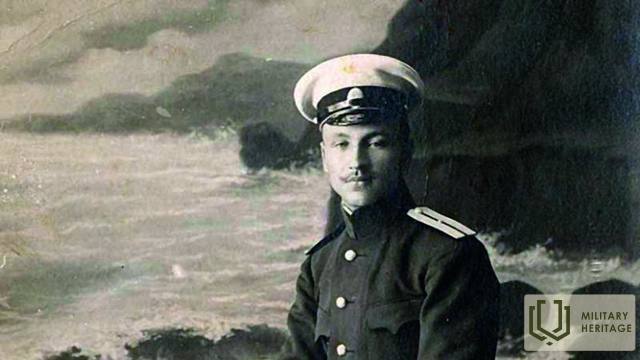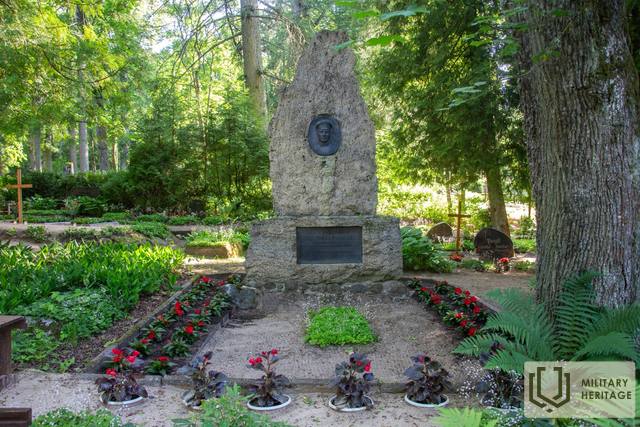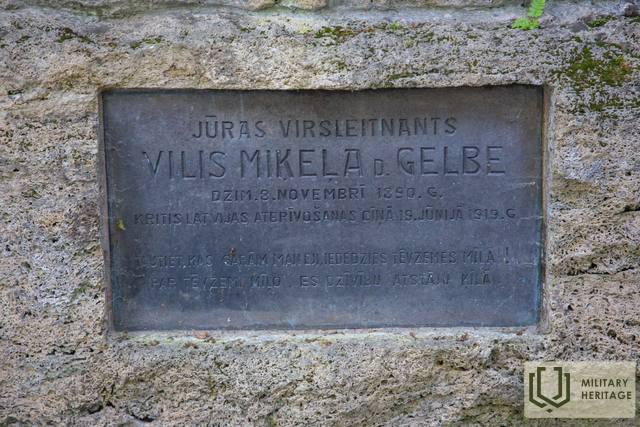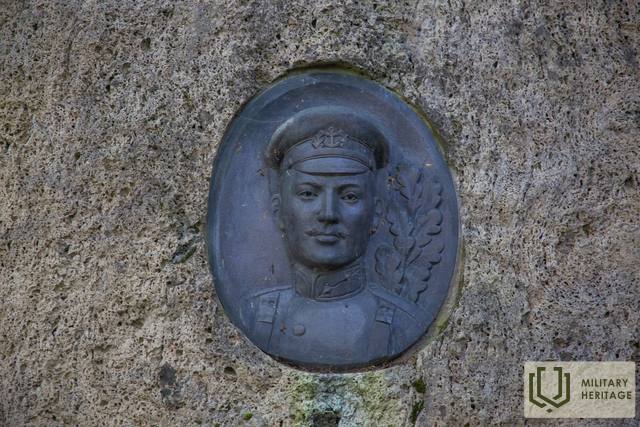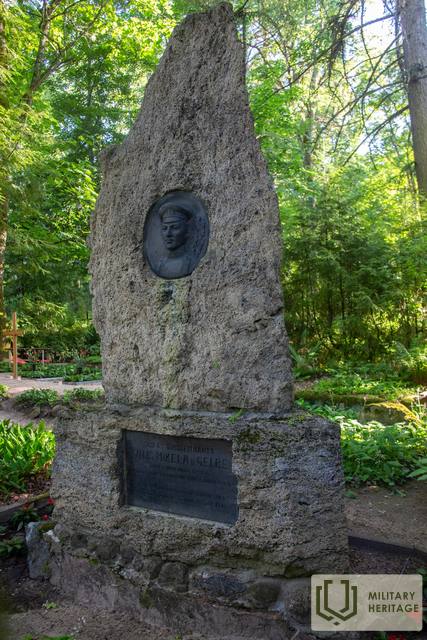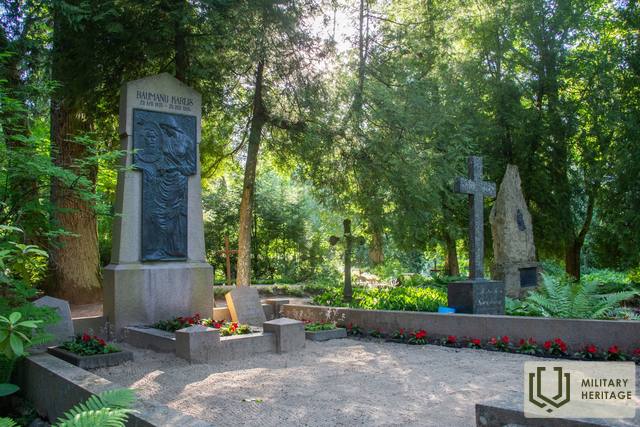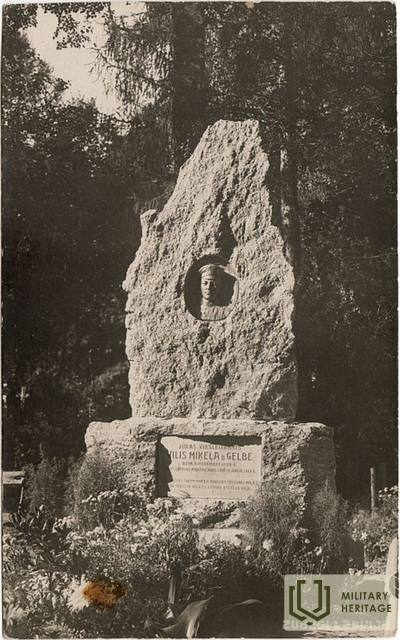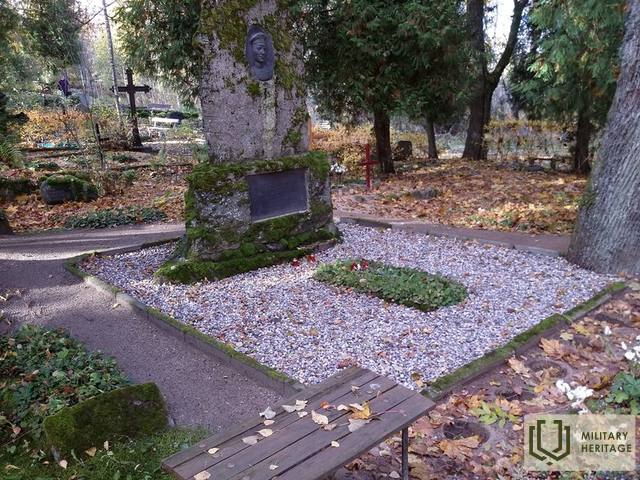Monument to Naval Lieutenant, L.k.o.k. Vilis Gelbes (1890-1919)
Memorial site
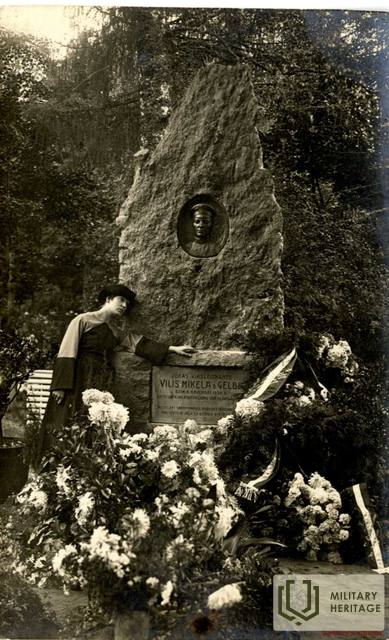

 90
90



Located at the Limbaži Jūras Street Cemetery, Jūras Street 56, Limbaži
On display is a monument unveiled on September 10, 1922 by the then President of Latvia, Jānis Čakste, which contains the dedication of the poet Vilis Plūdonis to Vilis Gelb:
"My people, who pass by me, burn with love for your fatherland,
"For the sake of my beloved fatherland, I pledge my life."
Vilis Gelbe (1890-1919) was born in Courland, in Zemīte parish, but was also closely connected to the Limbaži side, because when the Latvian War of Independence began, he returned to Latvia from St. Petersburg and joined the North Latvian Brigade.
In May 1919, V. Gelbi commanded in Limbaži, he became the military commandant of the area and was able to inspire the local men and even very young boys to join the army.
V. Gelbe's activities in Limbaži and its surroundings at that time were very significant; his duties included not only maintaining order in the city and its surroundings, but also mobilization, providing food for soldiers and horses, and resolving many other issues that could not be included in orders and instructions. The commandant's team organized by him acted as a coordinated mechanism to provide the North Latvian Brigade with the most effective assistance possible. The commandant's team went to the aid of the regular army in special cases, and he set an example for the new soldiers. V. Gelbe was the first officer of the Latvian army who proposed awarding his subordinates with the Order of Imanta, Class III. The order did not yet exist. The name of Imanta appeared in public only on March 20, 1920, when a presentation on the establishment of a military order was submitted to the Minister of Security, Kārlis Ulmanis. However, the name of Lāčplēsis was chosen for the order.
During the Battle of Cēsis, Vilis Gelbe died - on June 19, 1919, during a reconnaissance mission. Gelbe was later awarded the Lāčplēsis War Order, but historians believe that his contribution has not been properly appreciated. This is mainly due to Gelbe's membership in the North Latvian Brigade.
The so-called Southern Latvian Brigade, initially commanded by Oskars Kaplaks and later by Jānis Baložs, competed with the Northern Latvian Brigade, commanded by Jorģis Zemitāns.
Used sources and references:
https://www.sargs.lv/lv/vienibas-un-personibas/2016-11-25/mazak-zinamais-ziemelnieks-vilis-gelbe
https://www.lsm.lv/raksts/dzive--stils/vesture/izdota-gramata-par-brivibas-cinu-dalibnieku-vili-gelbi.a298469/
Related timeline
Related topics
Related stories
About the national patriot First Lieutenant Vili Gelbi
The fate of Lieutenant Colonel Vilis Gelbe (1890-1919) reflects the difficult situation in the formation of our state and army, as well as the assessment of these events.
With the proclamation of the Latvian state on November 18, 1918, the Latvian War of Independence and the work of building the armed forces began. In the first ranks of the Latvian volunteer soldiers was the naval lieutenant Vilis Gelbe, who was born in Courland.
The beginning, course and conclusion of the Battle of Cēsis
The victory in the Battle of Cēsis was destined to become a turning point in the Latvian and Estonian struggle for the independence of their country. This victory put an end to the plans of the Andrievs Niedra government and the German general Rüdiger von der Goltz to conquer the Baltics. Instead, the Latvian Provisional Government of Kārlis Ulmanis resumed its activities in Liepāja.




